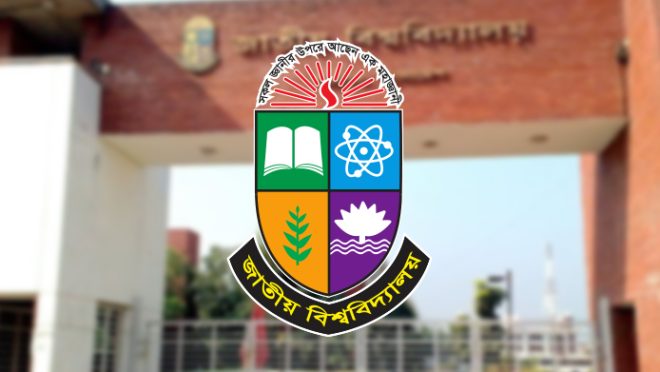Studying at National University: Pros and cons
Studying at National University: Pros and cons

In the context of higher education in Bangladesh, the National University (NU) stands as one of the largest institutions, catering to millions of students across the country.
While the NU system offers accessible education to a vast population, it also faces significant challenges that shape students’ academic experiences.
This article explores the pros and cons of studying at the National University in Bangladesh.
Accessibility and affordability: A major plus
One of the biggest advantages of studying at the National University is its accessibility.
With over 2,200 affiliated colleges nationwide, students from remote areas can pursue higher education without relocating to big cities.
This decentralisation ensures that rural populations can have access to tertiary education, bridging the gap between urban and rural educational opportunities.
In terms of affordability, National University offers one of the lowest tuition fees compared to private universities or other public institutions. This allows students from low-income families to complete their education without the heavy burden of tuition fees, ensuring financial inclusivity in higher education.
Limited resources and infrastructure
Despite its large outreach, one of the major drawbacks of National University is the lack of proper infrastructure and resources.
Many of the affiliated colleges are underfunded and lack modern facilities like well-equipped libraries, laboratories, and research centres.
The overall academic environment may sometimes be subpar due to overcrowded classrooms, inadequate teaching tools, and insufficient administrative support.
Additionally, most National University-affiliated institutions lack access to digital resources, which hinders students’ ability to engage in online learning or access research materials.
Flexible academic programmes
National University offers a variety of undergraduate and postgraduate programmes in both general and professional subjects.
For students interested in humanities, social sciences, business, and other broad fields, the university provides a wide selection of courses.
The flexibility of course offerings allows students to pursue education in their desired fields without being confined to specific disciplines.
However, some of the professional and technical programmes may not have the same level of expertise or rigor as offered by specialised institutions, which limits students who want to specialise in highly technical or professional fields.
Delayed academic calendar: A major setback
One of the most frequently cited criticisms of the National University is the significant delay in its academic calendar.
Many students experience a gap of several months, or even years, before their exams take place or results are published. This issue is exacerbated by political unrest, administrative inefficiencies, and resource shortages.
These delays can result in extended academic years, leading to frustration among students, and hindering their ability to plan for future studies or careers. This problem stands in stark contrast to other public and private universities, where academic calendars tend to be more punctual.
The quality of education and faculty
The quality of education at the National University varies significantly from college to college.
Some institutions provide excellent academic instruction with highly qualified faculty, while others struggle with underqualified or inexperienced teachers.
In many cases, the lack of motivation among the faculty, along with poor pay and limited opportunities for development, impacts the overall teaching quality.
Moreover, the curriculum may not always be up-to-date with the latest global trends, making students less competitive in the job market. The lack of practical and research-based learning opportunities often leaves graduates underprepared for real-world challenges.
Social networking and opportunities
While studying at the National University may not offer the same level of networking opportunities as leading private universities, it does provide a chance for students to connect with a diverse range of peers.
Students from different regions, socioeconomic backgrounds, and life experiences create a rich and diverse academic community.
Moreover, extracurricular activities like sports, cultural programmes, and debate competitions are available, albeit limited, in some colleges, helping students develop soft skills and build networks outside of their academic curriculum.
The long and the short of it
Studying at the National University of Bangladesh is a mixed experience. On one hand, it offers accessibility, affordability, and flexibility, allowing millions of students to pursue higher education. On the other hand, it suffers from infrastructural deficiencies, delayed academic calendars, and uneven quality of education.
For students who seek a cost-effective and accessible way to earn their degrees, National University serves as a viable option. However, for those who prioritisze timely academic progression, modern facilities, and cutting-edge education, the university may not be the ideal choice.
Ultimately, whether the National University is the right choice depends on individual priorities, career goals, and expectations for higher education.


